
Follow the WHO’s Guidelines for Staying Safe From COVID-19
Looking for the latest guidelines on how to protect yourself and others from contracting COVID-19? We’ve rounded up recommendations from the WHO for staying safe and healthy.
And these aren’t tips to keep to yourself! We’ve created shareable images for social media to help you get the word out.
Stay aware and Don’t Panic
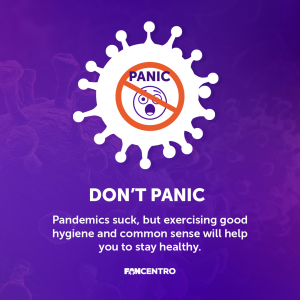
Make sure you’re up-to-date on the latest information on the COVID-19 outbreak (this information is available on the WHO and CDC websites).
Wash your hands (a lot!)
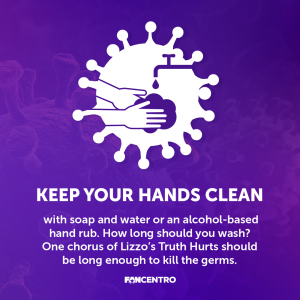
Wash your hands regularly with soap and water for at least twenty seconds, or use an alcohol-based hand rub.
Why? Washing your hands with soap and water or using an alcohol-based hand rub helps to kill germs and viruses on your hands.
Practice social distancing
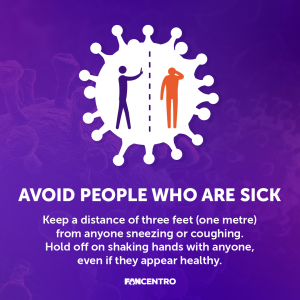
You may have heard the phrase “flatten the curve” when it comes to COVID-19. This is where social distancing comes in. Keeping away from other people and out of public spaces will reduce the risk of spreading the disease. Make sure to maintain at least 1 metre (3 feet) distance between yourself and anyone who is coughing or sneezing.
Why? When someone coughs or sneezes they spray small liquid droplets from their nose or mouth which may contain a virus. If you are too close, you can breathe in the droplets, including the COVID-19 virus if the person coughing has the disease.
Avoid touching eyes, nose, and mouth
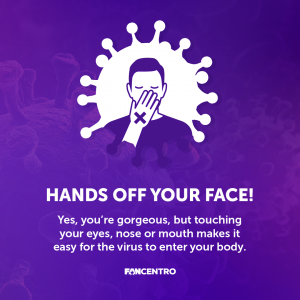
It’s a hard habit to break, but touching your face is a fast-track for viruses to enter your system.
Why? Hands touch many surfaces and can pick up viruses. Once contaminated, hands can transfer the virus to your eyes, nose or mouth. From there, the virus can enter your body and can make you sick.
Practice respiratory hygiene
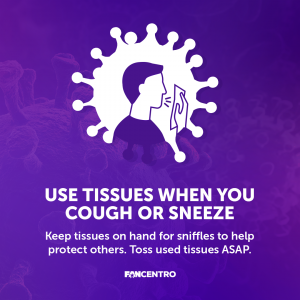
This means covering your mouth and nose with your bent elbow or tissue when you cough or sneeze. Then dispose of the used tissue immediately.
Why? See above! Droplets spread the virus, so being as hygienic as possible will help reduce the risk of infection..
If you have fever, cough, and difficulty breathing, seek medical care ASAP
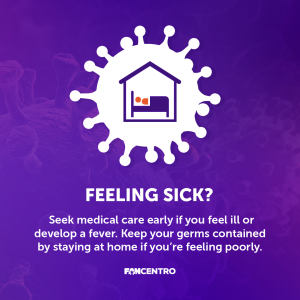
Stay home if you feel unwell, but if you have a fever, cough and difficulty breathing, seek medical attention and call in advance. Follow the directions of your local health authority.
Why? National and local authorities will have the most up to date information on the situation in your area. Calling in advance will allow your health care provider to quickly direct you to the right health facility. This will also protect you and help prevent spread of viruses and other infections.
Update!
CDC is now recommending the use of cloth face masks
While previous advice from the WHO and CDC did not advocate the use of face masks, new information has emerged to show that wearing a mask can help lessen the spread of COVID-19.
Does that mean you should seek out medical-grade masks? NO! Healthcare professionals are already facing a lack of equipment, so medical-grade masks should be saved for those who need them most. Instead, the CDC is recommending the use of cloth masks, which can be easily made at home.
Making your own mask? Here are things to remember:
Cloth face coverings should:
- fit snugly but comfortably against the side of the face
- be secured with ties or ear loops
- include multiple layers of fabric
- allow for breathing without restriction
- be able to be laundered and machine dried without damage or change to shape
The CDC recommends the use of cloth face masks whenever you’re in public, or if social distancing is hard to maintain. Get all the details, plus details on how to make your own cloth mask here.
In short, practice good habits, stay informed and follow advice given by your healthcare provider. National and local authorities will have the most up to date information on whether COVID-19 is spreading in your area. They are best placed to advise on what people in your area should be doing to protect themselves.





